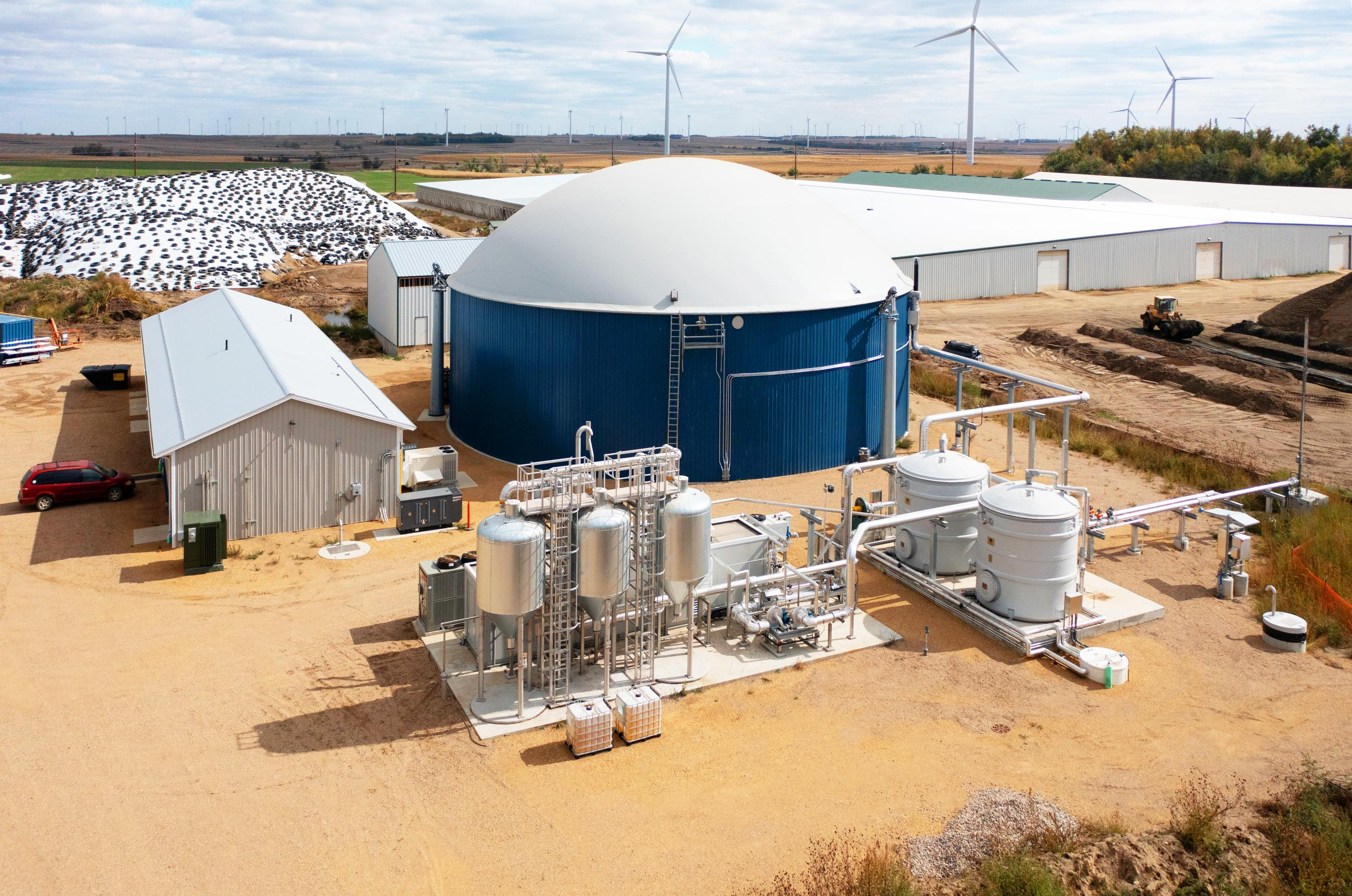Clean Energy Begins Injecting RNG from Minnesota Dairy into Pipeline Grid
(P&GJ) — Clean Energy Fuels Corp. has completed its latest renewable natural gas (RNG) production facility at Ash Grove Dairy in Lake Benton, Minnesota.
Now producing pipeline quality RNG and injecting it into the interstate natural gas pipeline grid, the facility is projected to supply up to 480,000 gasoline gallon equivalent (GGEs) of negative carbon-intensity RNG annually when at full capacity and will provide Clean Energy’s stations with clean-burning fuel for its commercial transportation fleet customers.
Located on a 55-acre site, Ash Grove Dairy is a multigenerational dairy farm home to more than 2,000 milking cows which produce milk, cheese, yoghurt and now clean RNG. The freestanding one-digester facility will process up to 60,000 gallons of manure each day, capture its harmful methane and prevent it from entering the atmosphere. This biogas will be converted into an estimated 165 MMBtus of RNG every day.
The project, financed through one of Clean Energy’s production joint ventures and developed by Dynamic Renewables, totaled $22 million and has now passed necessary gas testing and is officially producing ready-to-use RNG. Clean Energy is in the process of filing the applications to generate federal and state environmental credits.
“Ash Grove is our fifth renewable natural gas facility to come online in the last nine months,” said Clay Corbus, senior vice president at Clean Energy. “It’s always rewarding to see our efforts come to fruition when we begin injecting. With the growing demand for RNG, and interest really starting to take off as fleets realize how effective and immediate they can fuel cleanly, the RNG produced at Ash Grove will directly help with reducing carbon emissions across the country.”
Agriculture accounts for nearly 10 percent of U.S. GHG emissions and the transportation sector accounts for another 28%, according to the U.S. Environmental Protection Agency.
Capturing methane from farm waste lowers these emissions. RNG, produced by that captured methane and used as a transportation fuel, significantly lowers GHG emissions on a lifecycle basis when compared to diesel. This allows RNG to be one of the only fuels to receive a negative carbon-intensity score based on the reduction of emissions at the source and at the vehicle.
Related News
Related News

- Kinder Morgan Proposes 290-Mile Gas Pipeline Expansion Spanning Three States
- Enbridge Plans 86-Mile Pipeline Expansion, Bringing 850 Workers to Northern B.C.
- Intensity, Rainbow Energy to Build 344-Mile Gas Pipeline Across North Dakota
- Tallgrass to Build New Permian-to-Rockies Pipeline, Targets 2028 Startup with 2.4 Bcf Capacity
- U.S. Moves to Block Enterprise Products’ Exports to China Over Security Risk
- U.S. Pipeline Expansion to Add 99 Bcf/d, Mostly for LNG Export, Report Finds
- A Systematic Approach To Ensuring Pipeline Integrity
- US Poised to Become Net Exporter of Crude Oil in 2023
- EIG’s MidOcean Energy Acquires 20% Stake in Peru LNG, Including 254-Mile Pipeline
- Enbridge Sells $511 Million Stake in Westcoast Pipeline to Indigenous Alliance





Comments